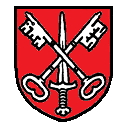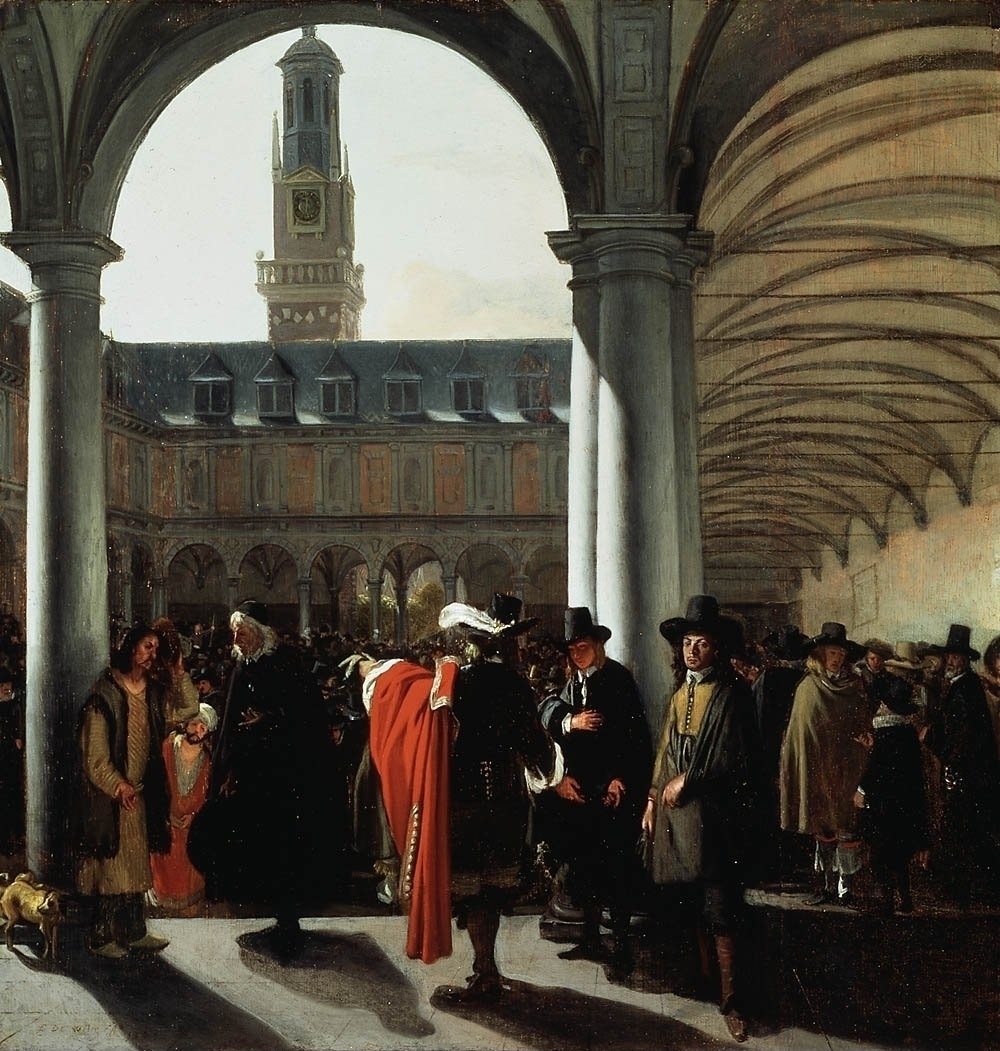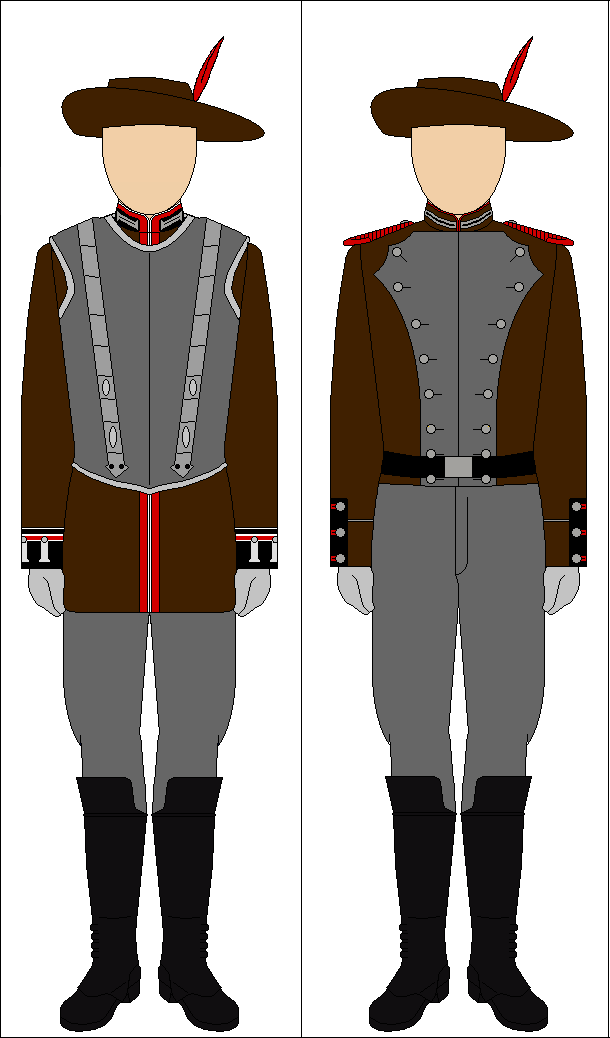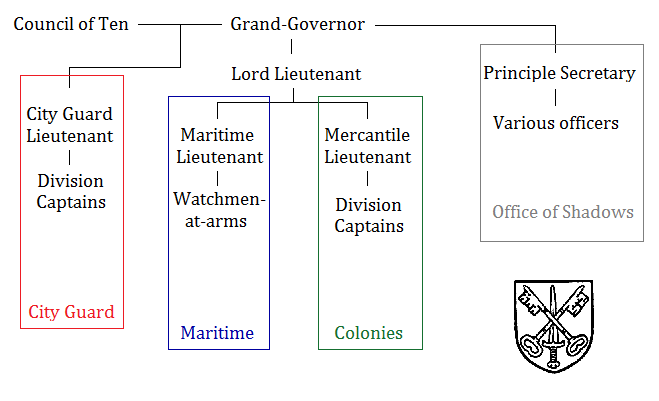Iron Company
The Iron Company (in Goldshire: Royal Iron Company) is a trading company and financial institution founded in 1638 AN (6229 ASC) by Ludovic Verion and Joachim Brunswick in Goldshire. The Iron Company is active in many different economic brances, from insurance and banking to trade missions. The Iron Company is chartered by the Lordship of Blackstone.
History
After Ludovic Verion, heir to the House of Verion, finished his education at Lewis College in Cimmeria, he moved to Goldshire. Under the reign of Queen Noor bint Daniyal, Goldshire had experienced a period of economic growth. Especially the Golshire mines were more productive than ever. Verion seized the opportunity and started the Iron Company by selling insurance to miners and mine owners. This proved a popular and profitable investment, and the Iron Company became a household name.
Not long after, Joachim Brunswick, heir to the Brunswick family that had made a vast amount of money in industry in the Syrelwynn valley, contacted Verion. The Brunswick run JM Group had experienced economic difficulty. The two agreed that the banking and industry branches of the JM Group would be incorporated into the Iron Company. Brunswick subsequently became a governor in the Iron Company.
After the Verion family was forced into exile, the island of Blackstone became a safe haven for the noble family. One of the first acts of the Council of Ten, the governing body of Blackstone, was to grant the Iron Company a Charter which gave the company significant privileges, such as the right to mint currency, form a militia and set up colonies on behalf of the government of Blackstone.
Areas of Operation
The Iron Company has business dealings all over Micras. It is active in six different countries. In some nations, the Company provides services of governance, while in others, the main focus is on import and export of goods.
Blackstone
The Lordship of Blackstone has been associated with the Iron Company from the start. It is not remarkable that the connection between the government of Blackstone and the Company is very evident. One of the seats of the governing Council of Ten of the island is reserved for a representative of the Iron Company. The Company regards Blackstone as the center of its business endeavours. The international headquarters of the company, as well as the Mint, the Stock Exchange and the shipyards are located on the island.
The Iron Company also has control over the Blackstonian colony of Itteria.
Goldshire
By decree of the Queen of Goldshire, the Iron Company received a royal warrant. Subsequently, the Goldshirithian branch of the Company is known as the Royal Iron Company. The Royal Iron Company was granted an exclusive right to mine iron, aluminium and nickel in the Counties of Elsenar, Suthergold, and Amity—Mirioth—So-Sara, as well as partial governance over the harbour cities of Chryse, New Harbor and Erudition. The Royal Iron Company established trading posts in the aforementioned cities that serve as the hubs of transit for the shipping of goods.
In 1643, the Iron Company entered a co-operation agreement with the Emirate of Khaz-Modan. The Iron Company would assist the Local Service Regiments in their serious duty to protect the citizens of Amity. The Iron Company also provided the Regiments with Steel from the Erudition Steelworks, as well as 250 Heavy Machine Guns, 20 Armoured vehicles, 70 missile launcers, 4 tanks and one naval supply vessel. In return, the Emir of Khaz Modan would provide the Iron Company ships with protection against pirates in the Yardistani sea, and granted the Company the privilege of tax collecting on the island of Yardistan. This agreement saw a significant change in loyalty of the Iron Company in the Civil War in Goldshire.
Calbion
The Principality of Calbion has granted the Iron Company the governorship of the island of Port Impregnable, which serves as the main trading hub of the Company for Eastern Micras. The Company also has major ports in the Calbain towns of Pentyre, Arryn, Caer Agra, Port Rivers and Port Arenas.
Jingdao
The Iron Company is the only foreign company that has access to the Jingdaoese market, albeit under limitations from the Imperial Government of Jingdao. The port of Tiě Gǎng is the basis for the Iron Company in Jingdao. The Company also exports Jingdaoese products such as silk, tea and rice.
Natopia
Through the Lord Regency of Alrodey, the Verion family has influence on the Natopian island. The ports of Ashington and Rostock are the main ports used by the Iron Company. The mining of precious metals and diamonds on Alrodey was exclusively granted to the Company.
Governance
The Iron Company is lead by a board of Governance, chaired by the Grand-Governor. The Governors decide the direction of the operations of the Company. Local branches are governed by Governor-Representatives, who also sit at the board of Governance.
| Governor's Name | Office | Residence | Governor since |
|---|---|---|---|
| Ludovic Verion | Grand-Governor of the Iron Company, Director of Operations | Blackstone | 1638 |
| Joachim Brunswick | Governor of Banking and Insurance | Chryste, Goldshire | 1638 |
| Cedric Rivers | Maritime Lieutenant, Representative to the Council of Ten | Blackstone | 1639 |
| Valkner Lewis | Principle Secretary | New Harbor, Goldshire | 1639 |
| Giacomo Contarini | Governor of Political Affairs | Erudition, Goldshire | 1639 |
| Tobias Keyzer | Mercantile Lieutenant | Blackstone | 1639 |
| Marcus Lucius | Governor-Representative of the Iron Company in Flanders | Zeebruswerpen, Flanders | 1639 |
| Villiam Al-Basani | Governor-Representative of the Royal Iron Company of Goldshire | Chryste, Goldshire | 1640 |
Although the governors officially have an equal position within the Company (the Grand-Governor being the primus inter pares), in practice there is a great difference of influence between the members of the Council. For instance, Villiam Al-Basani, as Governor-Representative of the Royal Iron Company, has control over all operatons in Goldshire, which is the most important field of operations for the Company and as such has an incredibly crucial position.
Branches of operation
The Iron Company has many different business ventures and offers a diverse array of services across Micras.
Minting
The main business of the Iron Company is international trade, which the company provides in the continents of Benacia, Tapfer and Keltia. Another important branch of activity is banking and insurance. The Iron Company mints currency and provides banking services on behalf of the governments of Blackstone and Alrodey. In Goldshire, the Iron Company is active in mining of Iron, Copper and Silver, while it also operates public transport, such as Iron Airships, and provides security operatives.
Banking and Insurance
The historical core business of the Iron Company was insurance. The Company acquired a lot of its wealth by selling insurance to miners and to owners of the various gold, and silver mines of Goldshire. Later, the insurance branch expanded to ship owners, who wanted to protect their investments by insuring the goods or ships that were engaged in the international trade. Pirates, storms and unidentified creatures of the sea were common dangers for those brave souls who dared to cross the ocean in order to get rich, so selling insurances was a lucrative business. Following from the selling of insurance, the Iron Company also began to give loans and started selling mortgages.
Mining
Goldshire's gold, and silver mines were not only a source of income to the Iron Company with regard to selling insurance, but the Company also started to exploit its own mines. Engineers of the Company invented ways to extract the precious metals
from the earth in a more cost-efficient manner than the methods used by other mines, so the Iron Company was able to gain a competitive advantage, and used this to buy out many of the other miners in the Golshirithian heartland. The Iron Company set up protected roads to transport the gold and silver to one of the three RIC harbour cities.
Iron Airships
A slightly less profitable venture was the creation of Iron Airships. After Count Ryker Everstone entered a career in the Shirithian capital of Shirekeep, he neglected his Airship company, Ryker Airships. The Iron Company saw this as an opportunity to start out in the airship business as well. Some older ships of the R.A.S. were bought and updated. Unfortunately, the I.A.S. was not as popular as the larger R.A.S. and did not manage to gain the largest share of the market. Rumours that the Iron Company sought to reverse this situation by publishing negative reports on Ryker Airships in the Iron Gazette are not substantiated.
Iron Militia
The Iron Militia is a private army which is under the command of the Grand-Governor of the Iron Company. The Militia was originally established to protect the warehouses and shipyards of the Iron Company, but has expanded since. Currently, the Iron Militia is the largest army on Blackstone, and the Militia is hired by the Council of Ten to provide the City Guards for the city of Blackstone.
The main interest of the Iron Miliia however still is to safeguard the interests of the Iron Company and they do this in several different ways. In the oversees territories controlled by the Iron Company, such as trade posts, the Militia serves as a defense army. At sea, the Militia provides protection for the vulnerable ships that sail all over the globe. Aside from this, the Militia has a secret branch, known as the Office of Shadows, that serves as an intelligence gathering service for the Company. The existence of this office is neither confirmed nor denied by the Grand-Governor.
Iron Fleet
The Iron Fleet is the name for the ships in service of the Iron Company. The fleet consists of a mercantile and a military branch. The military fleet is commanded from the isle of Blackstone.







